08:13, 12/05/2023
Composing a good literary work is difficult, writing a good work for children is many times more difficult, but poet Do Toan Dien ( Dak Lak Literature and Arts Association) has done it with the poetry collection "Going to the sky to pick stars".
With such pure language, the poet “painted” the children as the central characters looking at the world, asking many questions with “childish thinking” that adults cannot easily answer. Only by answering with the way children see, understand, and speak can they be convinced, from whicheducational lessons about compassion, solidarity, and passionate learning can be incorporated… The poem “Rabbit Ears” sent children a message about honesty and not lying through very lovely artistic images: “One night going to bed/ The rabbit’s ears suddenly grew longer/ Cried all night/ The ears did not get shorter (…)/ … Mom, I was foolish/ So I lied to my chicken friend/ The ears grew longer”.
Children wonder: Why do bats sleep when hanging upside down on tree branches? Here, the author answers in the poem “Baby Bat Sleeps”: “I sleep on the bed/ The bat sleeps upside down/ Hey little bat/ I don’t sleep on the bed/ If I get dizzy/ How can I go to school?”.
Only children can think and speak in such a lovely way! Only a poet who can keep his eyes open to life can write poems that make children happy because they can see themselves in them.
Regarding the phenomenon of homonyms in Vietnamese, Do Toan Dien also has a very funny explanation. That is the horse and the seahorse in the poem “Seahorse”: “One lives underwater/ The other lives on land/ The fish has the same face as the horse/ But never neighs…”.
Or the dragonfly and the flying fish in the song "Flying Fish": "Flying fish met dragonfly/ Both sides glanced at each other."
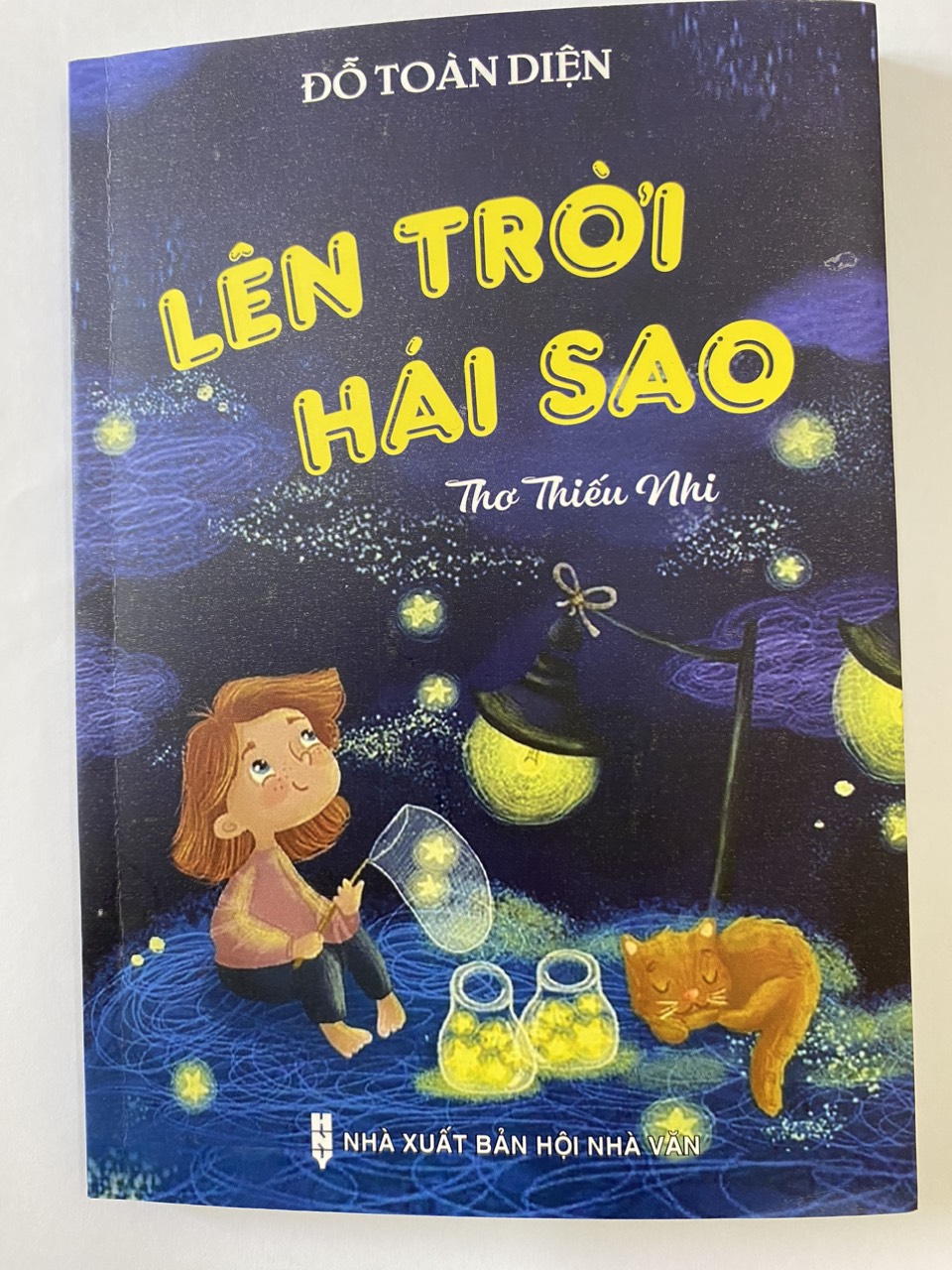 |
It is a lesson about the sense of attachment to one's roots and homeland: "We salmon/ Always remember our roots" (Salmon Tells a Story). It is also a lesson about loving work, whether big or small, if useful, all work is equally noble: "The woodpecker/ Travels everywhere/ Heals trees/ Specializes in doing good deeds" (Woodpecker).
There is a unique, innocent explanation of the moon that has not appeared in any poem: “The naughty moon climbed the mountain/ Slipped and fell, splitting its lip/ Becoming a crescent moon/ Like a kite hanging in the sky” (Moon with Split Lip).
The artistic world in the poetry collection “Going to the sky to pick stars” can be temporarily divided into two parts: One part is for familiar animals and objects that children love such as rabbits, chickens, cows, fish, erasers, etc.; one part is for images of the homeland and country with places or landscapes (“Beautiful Sa Pa”, “ Ha Giang ”, “Kim Tan Sugarcane”…) or places that mark history and culture (“Visiting Dong Loc Cemetery”, “Ho Dynasty Citadel”…). Along with those natural and social pictures, the images of people dear to children are also portrayed very touchingly. In this second part, in the artistic perspective, there is an intersection of both childish and adult ways of seeing and speaking. Therefore, the “immature” quality is somewhat lacking, but it still has the effect of guiding children to the values of truth, goodness and beauty. These are the poems "Beautiful class, beautiful school", "Telling stories about my hometown", "Drops of sweat", "My school library", "She is also a mother", "Summer of love for mother", "Visiting Dong Loc cemetery", "Tam Dao"...
It is a vivid picture of the mountains and forests, depicted according to the feelings of children: “The thousand streams are awake/ Birds chirp and call their flocks/ Forest leaves spread their arms and wave/ Monkeys swing from branch to branch…” (Forest Song).
In the poem “Dad on a distant island”, the image of a soldier father appears so beautiful and strong in the eyes of a child: “My father is a soldier / Guarding a distant island / Two tanned hands / Firm as house pillars (…) / … Tomorrow my father's leave ends / Father said “the sea is calling” / Be a good boy, study well / Father will always be near you”.
In this second part, the two best poems are probably “Going to the sky to pick stars” and “Garden eyes”. The poem “Going to the sky to pick stars” is like a magical link between the two parts of the collection: The natural scenery in the countryside is “felt” and “described” by the eyes of both children and adults, funny and lovely. Love for the homeland is like sweet raindrops flowing coolly in the words: “The sharp chirping of birds pierces the sky/ The toad and frog family gathers their words to call for rain/ The golden sun pours honey down at noon/ The kite flute sways and waves invitingly/ The kite has drunk the wind to its fill/ How many legends contribute to folk songs/ The dragonfly drinks up the pond/ The tilapia jumps to pick thousands of stars across the sky/ The catfish lies flat on its head to rest/ The pestle misses its friend, tears well up and fill up again/ The snail and the slug fill up the thin moon/ Thousands of twinkling stars fill up childhood”
In the poem “Garden Eyes”, the author must have had the talent of keen observation, and a deep love for children, for nature and life around us to be able to write such clear verses: “The leisurely eyes/ Step out from the bamboo/ The eyes of the custard apples/ Old fruit, eyes wide open/ Small fruit, eyes tiny/ The eyes of the sugarcanes/ Always in a straight line/ The eyes of the village bamboo hedges/ Stay awake to lull the wind to sleep/ Pineapple eyes are all over the place/ So many... so many/ Only the kite/ Has only two eyes/ Eyes of clear dew drops/ Sparkling and so lovely”.
With this collection of poems “Going to the sky to pick stars”, readers still find intact in poet Do Toan Dien a poet’s heart full of love for children, for his homeland and country. Without that love, it is impossible to write such pure and sweet verses…
Happiness
Source link



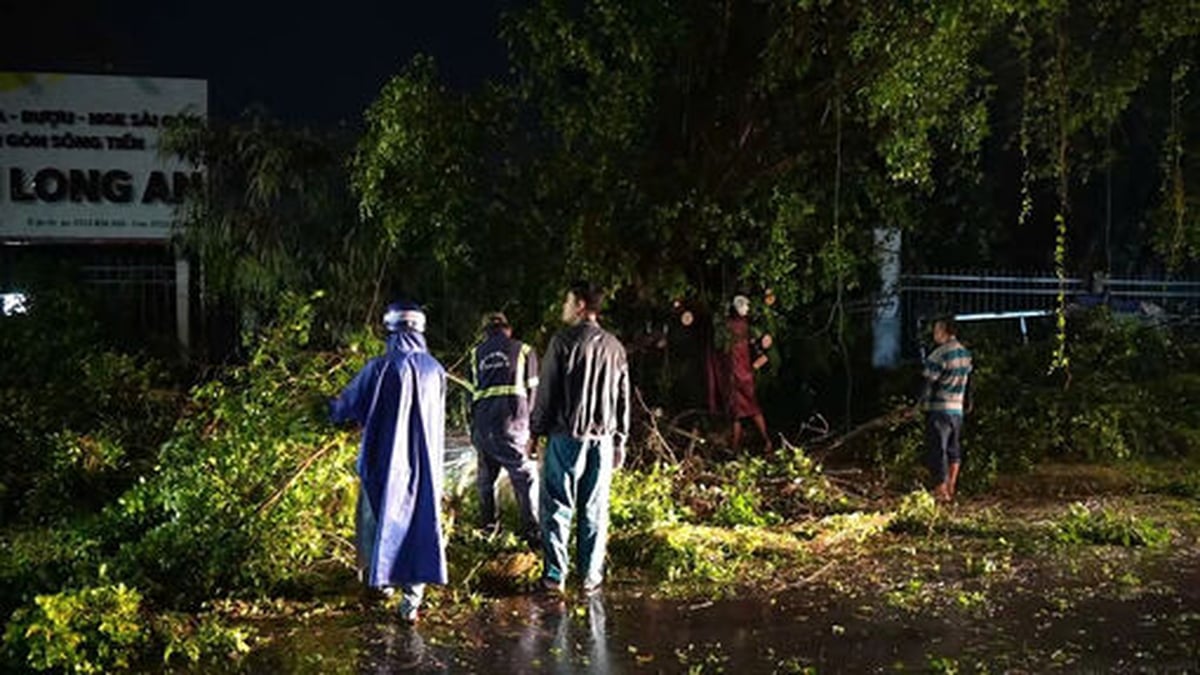

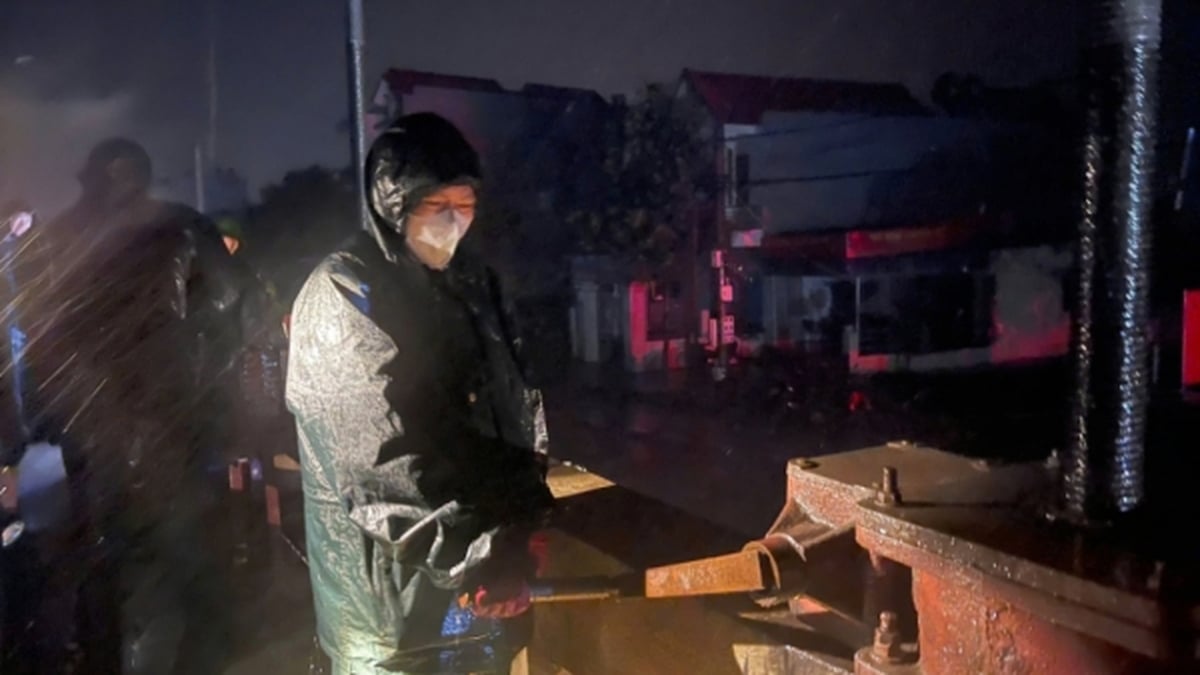
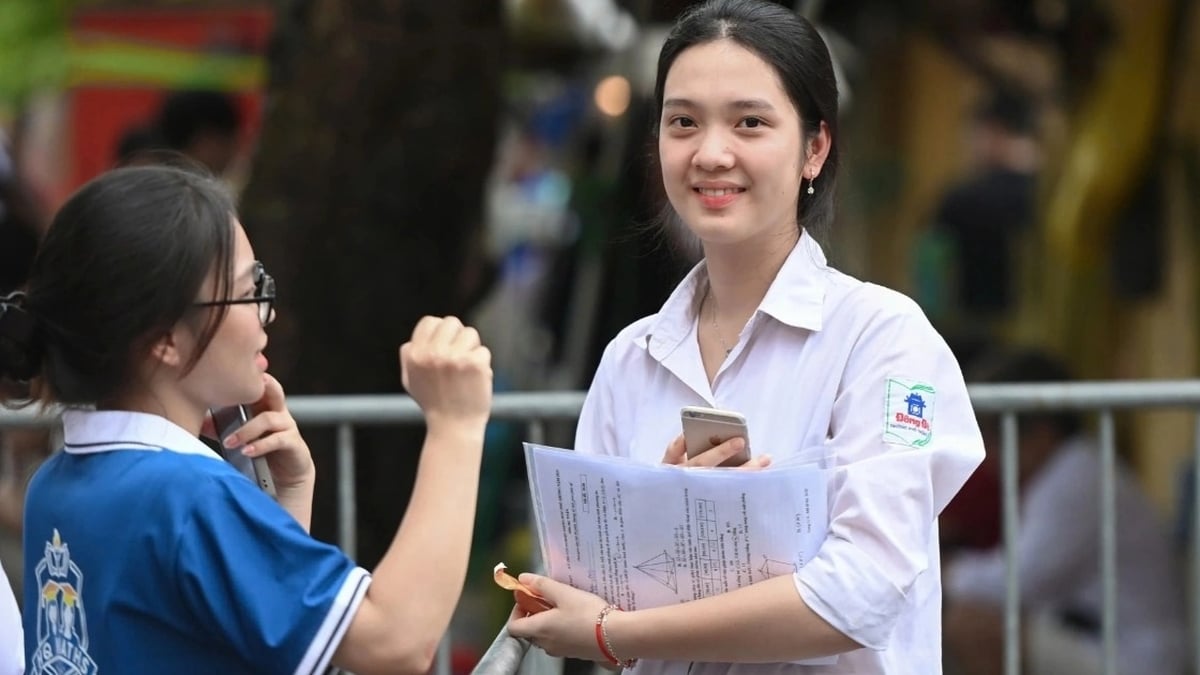

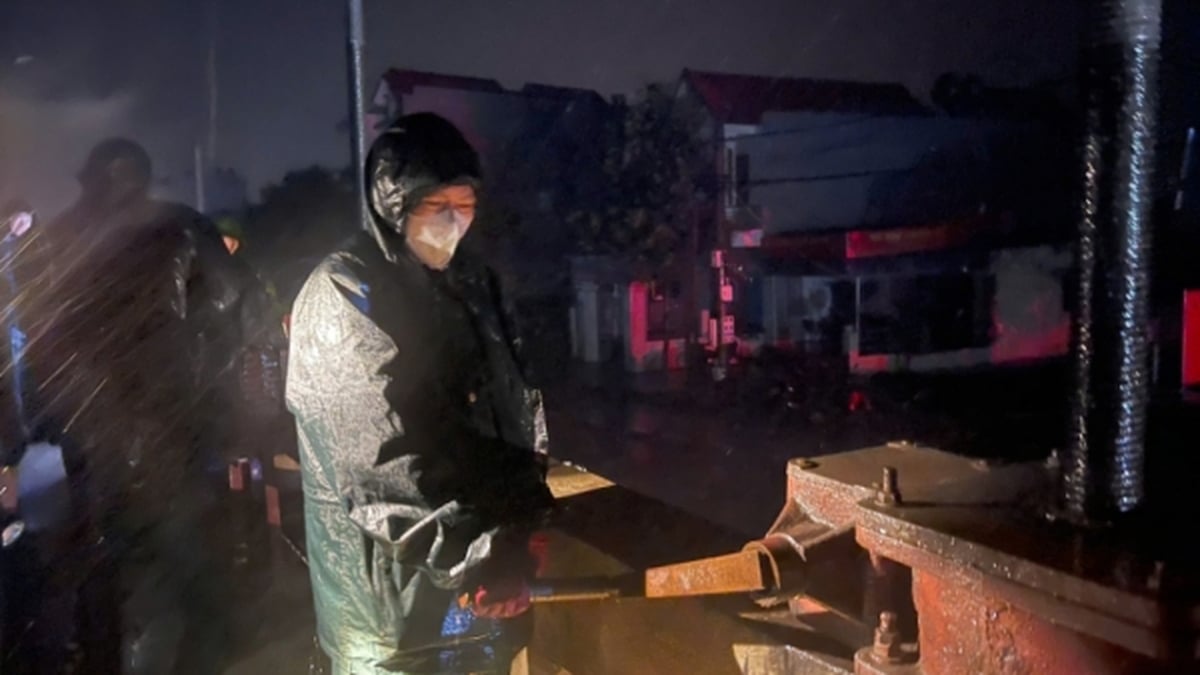
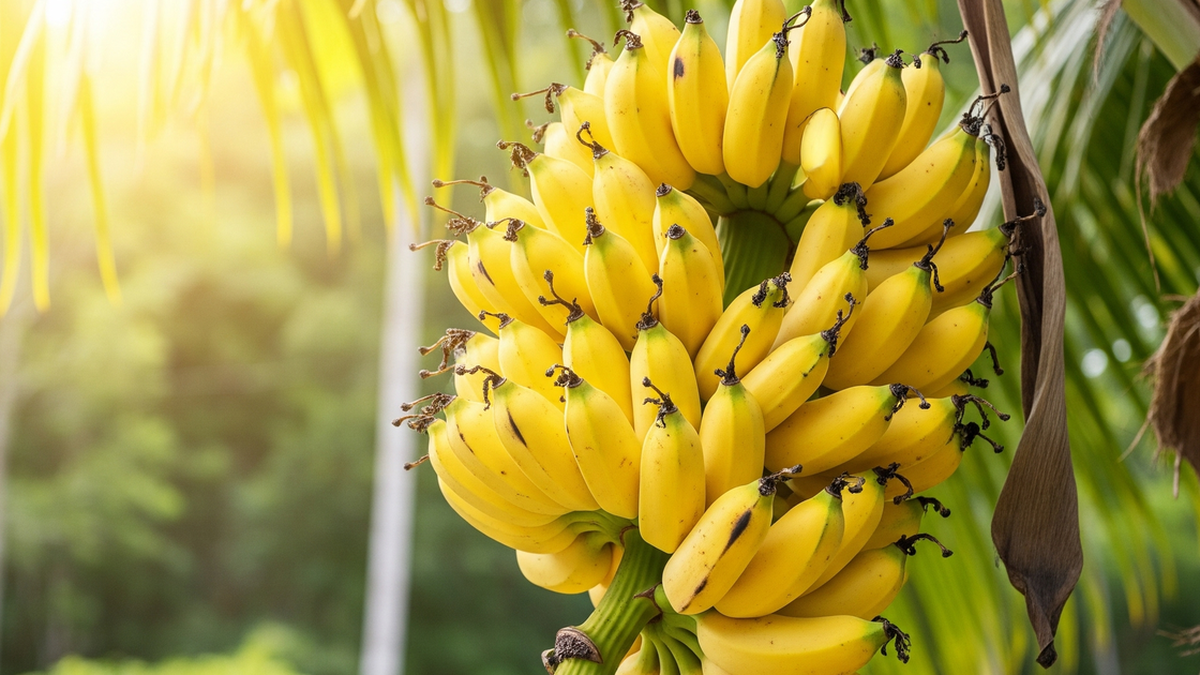

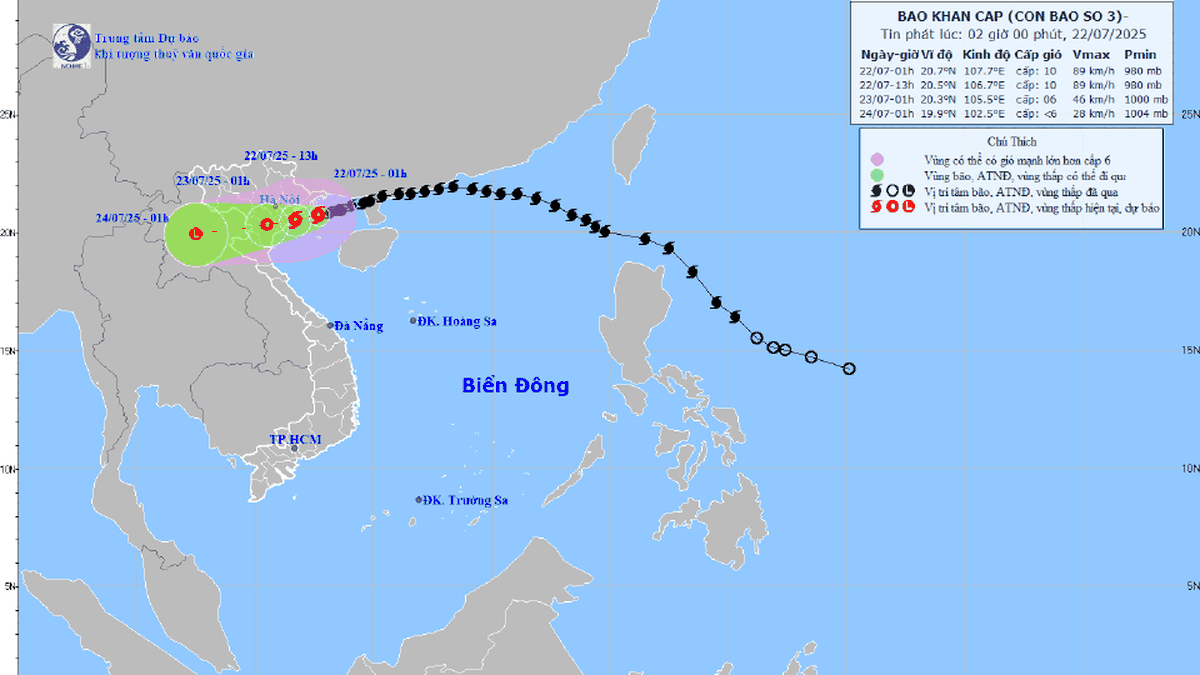



















![[Photo] National Assembly Chairman Tran Thanh Man visits Vietnamese Heroic Mother Ta Thi Tran](https://vphoto.vietnam.vn/thumb/1200x675/vietnam/resource/IMAGE/2025/7/20/765c0bd057dd44ad83ab89fe0255b783)






































































Comment (0)